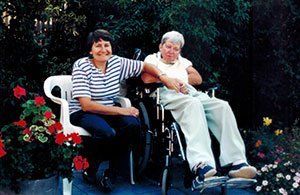Let Me Tell You About My Mexico
I have always loved travelling in Mexico. It was in February 1990 that I first walked the beaches that fringe Banderas Bay. The blue waters filled with recently born humpback whale carves and their mothers.
It was the first occasion I slugged back an ounce of tequila; it was the first time I heard a live Mariachi band. It was the first occasion – followed by many more – of being in the zocalo surrounded by pigeons; seeing Mexican fathers proudly showing off their infant daughters and the bright extravaganza of the balloon seller.
Since then I have been in many sea side Pacific and Caribbean towns and stood beside massive Olnec Heads in the state of Veracruz and watched shade coffee harvested in the cloud forest. I have been healed by a shaman and I have clapped as an old Tarahumara Indian danced in the glow of the camp fire at the edge of the at the edge of the Urique Canyon, the deepest canyon in the Sierra Tarahumara at 1,879 meters (6,200 feet) down.
I have explored Mayan Ruins and underground senote. During the spring Equinox I have watched the sun's shadow show the descent of the Serpent Kukulkan at Chichen Itza.
I have walked the streets of Merida with a young Mayan hammock seller who proudly showed me his identity card that allowed him to sell. He was proud to speak English. His family in the village who made the Hessian hammocks only spoke their native tongue; they did not even speak the official language, Spanish.
So it hurts me that the stories of violent deaths, corrupt police and drug crimes have tainted Mexico’s name and driven away the tourists. Swine flu decimated the legitimate business in tourist areas like Puerto Vallarta. When I went back the following year the empty stores told the tale of those who never survived the dearth of tourists.
I took a friend to Puerto Vallarta in February 2010. She brought with her the fears impressed on her by the media and friends saying “oh do be careful.” Within 24 hours she cast aside the apprehension. What was it about Puerto Vallarta that changed her? Two realities. She had been in resorts in Jamaica and The Dominican Republic before this trip. In both resorts she learned never to stray. You had your bit of beach and that’s where you stayed. That first weekend we were in P.V. we walked the Hotel Zone beaches south towards the down town. We walked in front of all the hotels. We passed local Mexicans having traditional weekend picnics on the beach. They fished in the ocean; they brought their BBQ with them. The men were with their families and grandma was there too.
Vendors sold grilled shrimps on sticks with quarters of lime. Further down the beach the hotel staff had set up massage tables. Para-sailors dropped out of the sky. Everyone intermingled, everyone was having fun. Vendors invited you to look at all manner of souvenirs, but all understood No Thank You. Certainly a lot of vendors so a great number of No Thank Yous, but everyone was relaxed. On coming back to the resort we wandered round the swimming pools. Mexican families splashed in the water together. The second reality – there is a Mexican Middle Class. They go on holiday. Who would have thought it from the stories in the media?
However another reality hits us. North American, European, in fact all holiday makers who consume alcohol, do so on holiday. Many find being away from home is an excuse to over indulge. Many behave in ways that they hope their bosses never know. Many tourists do silly things. Some tourists get into trouble. One common problem is testosterone. Young Mexican women are beautiful and fun loving. Catching one is a perceived right of passage for a holidaying stud. A black eye or bloodied nose is an occurrence not often reported. No travelling young man likes to admit he got beaten up by the girl's Mexican boyfriend. Some die.
I think there are very few countries in the world that one would want to risk getting involved with the police. There are very few cities in the world where one would walk late at night on shadowy streets. Yet tourists do it all the time. Go figure. I am not negating the pain and horror of crimes that have taken place and the lack of cooperation when the authorities are called. Crime follows the unsuspecting tourist everywhere – how many get out of Rome without meeting someone who has been pick pocketed? Sometimes one cannot escape crime, other times one ignorantly invites it.
Mexico will become a drug cartel run danger zone if legitimate jobs are not found for people. Tourism is one way we can stop that deterioration. Another beef I have about criticism of Mexico. If the drug trade is ruining Mexico – who are those consuming the drugs? Who is responsible for creating a demand that is being serviced by those trafficking drugs? We are. If there was no demand, there would be no business.
In February 2013 I took two other friends to Puerto Vallarta, who had never been to Mexico. They too did not know what to expect. We just had to walk the beach at Destiladeras and enjoy lunch over looking the beach watching spouting humpback whales in the bay, and they were caught in the Mexican spell.
February 2015 will see me in Mexico again, travelling from north to south on the Baja Peninsula. Oh yes, you will be hearing all about it.
Go back to Mexico and create the legitimate business of tourism. Go back and enjoy the country which has so much to give.















